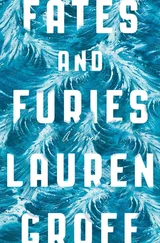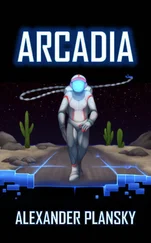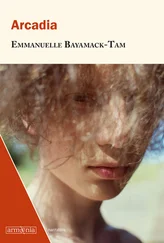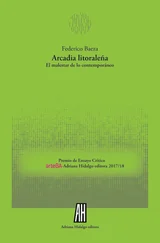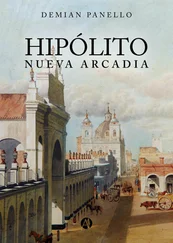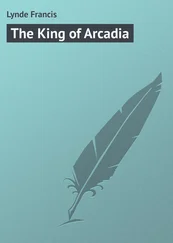Lauren Groff - Arcadia
Здесь есть возможность читать онлайн «Lauren Groff - Arcadia» весь текст электронной книги совершенно бесплатно (целиком полную версию без сокращений). В некоторых случаях можно слушать аудио, скачать через торрент в формате fb2 и присутствует краткое содержание. Год выпуска: 2012, Издательство: Hachette Books, Жанр: Современная проза, на английском языке. Описание произведения, (предисловие) а так же отзывы посетителей доступны на портале библиотеки ЛибКат.
- Название:Arcadia
- Автор:
- Издательство:Hachette Books
- Жанр:
- Год:2012
- ISBN:нет данных
- Рейтинг книги:3 / 5. Голосов: 1
-
Избранное:Добавить в избранное
- Отзывы:
-
Ваша оценка:
- 60
- 1
- 2
- 3
- 4
- 5
Arcadia: краткое содержание, описание и аннотация
Предлагаем к чтению аннотацию, описание, краткое содержание или предисловие (зависит от того, что написал сам автор книги «Arcadia»). Если вы не нашли необходимую информацию о книге — напишите в комментариях, мы постараемся отыскать её.
Arcadia — читать онлайн бесплатно полную книгу (весь текст) целиком
Ниже представлен текст книги, разбитый по страницам. Система сохранения места последней прочитанной страницы, позволяет с удобством читать онлайн бесплатно книгу «Arcadia», без необходимости каждый раз заново искать на чём Вы остановились. Поставьте закладку, и сможете в любой момент перейти на страницу, на которой закончили чтение.
Интервал:
Закладка:
Bit and his daughter stand out on the porch of the Green house, unwilling to breathe the bad spores of Hannah’s sadness into their lungs.
Up the drive, however, come headlights. The car stops and the engine shuts off. A woman emerges, saying, Stone? This is Stone house?
Nurse Luisa? Bit says, remembering the name Astrid had mentioned yesterday. He flicks on the porch light and sees a very small woman shuffling up the steps. Her face is cracked with a broad grin; she wears a child’s pink backpack high like an extra hump on her shoulders. I lost for half hour! she says. So glad I find you!
The nurse surprises Grete with a hug. When she turns to Bit, she squeezes him fiercely around the middle and says, I come to make things easier. Now. Have anyone eaten dinner?
No, Bit says, and Luisa clucks. In you go, she says. Make the dinner.
Oh, he says. It’s been a long day. Nobody’s very hungry, I think, Luisa.
She beams up into Bit’s face and says, Times like this? Schedules are lifeboat. Make the dinner, make the breakfast, make the bed. It will help to be strict with yourself.
He likes this bossy Luisa, this plain brown woman, a stranger but familiar as an aunt. She pats his arm and gives him a little push inside.
He brings his mother a bowl of soup. She doesn’t open her eyes but accepts half the bowl in spoonfuls. How like a baby bird, he thinks, seeing her open her mouth, her eyes swollen shut, the skin so thin against the bones of her skull. Or, simply, a baby: tiny Grete gazing at him solemnly over a spoon full of pureed peas.
He goes to the closet to find Hannah another blanket. The night is cold, and the window was left open too long for the house to have retained its warmth. When he opens the door, Abe’s smell rises to Bit from the clothes: that clean sweat of him, the metal of him. The lingering last ghost of his father sideswipes him. He knows it’s absurd, but he closes the door to save a little of his father for later.
All weekend, Hannah won’t get out of bed save to drag herself to the bathroom. She sips at the soup Bit makes and only nibbles at the toast. Luisa comes at nine every night and leaves at five, and though it isn’t her job to clean, the house is scoured when he wakes in the morning.
Hannah still won’t talk to him, not a word.
On Monday morning, Grete is eating the last of the granola in the jar. Her face is so carefully made up that Bit stares at her. She touches her cheek and frowns. War paint, she says.
You’re going to blow these country kids’ minds, Bit says.
What if I don’t? she says.
Then they’re brain-dead, he says. Then they don’t have minds to blow.
She sighs and washes out the bowl. What are we going to do about Hannah? she says. She needs to get up. There’s no point in us being here if she doesn’t make any effort to be human.
If she hasn’t gotten out of bed by tonight, we’ll get her up ourselves, he says.
Okay, Grete says. She shoulders her backpack and says, with Hannah’s old wryness, Goody. That’ll give me something to look forward to while I’m getting wedgied.
They drive in silence to the school, and he gently takes her hand when she begins to chew her nails to the quick. In the drop-off area of the squat brick high school, Bit sits with Grete, gazing at the flickering clumps of students.
Boys, Grete says, frowning. They watch the boys buffooning around, and Grete says, I think I’m already starting to miss the all-girls’ pedagogical model.
Bit laughs. I’m having bad flashbacks of my first day in real school, he confesses. If I can give you any advice, it’s to smile and be cool.
Smile and be cool, she mocks him. She squeezes his hand. Then she squares her shoulders like a diver at the end of the board and steps gracefully out. A sudden magnet, his tall, bony daughter with her pink hair in this sea of sweatpants and hunting camouflage. Even in his car, Bit can feel the weight of the attention upon her. He has to pull away to stop himself from leaping out after Grete and dragging her safely home.
He sits in the dark room with Hannah. All day, he tries to feed her soft fresh bread he’s baked and reads her Tristram Shandy to make her laugh; she refuses both. Her breathing is labored. Radio, she commands, and he listens with her to a radical homemaking show (how to make dandelion wine; how to set your own broken bones) and, for as long as he can stay in his seat, to the news. They’re now calling the pandemic SARI, for severe acute respiratory infection. Oops, says Bit. Sorry! But Hannah doesn’t laugh.
Over seven thousand people are dead; the disease has spread to Hong Kong, Singapore, mainland China, San Francisco, Adelaide in Australia. The Centers for Disease Control, gutted by low federal taxes, have sent out a strongly worded warning for people to avoid hospitals and flights, and nobody is doing much more. Bit stands, agitated. Although it’s early to pick up Grete, he lets himself be chased from the house by the news. First, he’ll stop in town to pick up vegetables and coffee and tofu and rice milk. Muffin’s mothers still run the natural-foods store in town, and they fall upon Bit when he comes in. He finds himself squashed in a middle-aged lesbian sandwich smelling of herbal cough drops and celery. Cheryl and Diana cry, now, as they hadn’t cried at Abe’s memorial service.
Abe was the most practical man, says Cheryl. Infuriating as hell, but always got his way.
He was the last person in the world I thought would do what he did, Diana says. We always thought Hannah. . And she trails off, stricken, bulging her eyes at her wife.
That’s why Abe succeeded and Hannah didn’t, Bit says when the surge of pain has faded.
They show him pictures of Muffin’s children, all eight owlish in glasses, shirts buttoned up to their throats. Missionaries, Cheryl says with a snort. With two old heathens like us, it makes you wonder where all that religion came from.
Before Bit leaves, Diana hugs him and whispers in his ear, You’ll get your mother out of it. You always do.
Then she holds up a carrot from their garden. It is an odd, mutant thing that looks like two human bodies twined in coitus. Show Hannah this, she says. Our Kama Sutra carrot. We’ve been saving it for a special occasion. Alone in the car again, holding the lewd thing in his hand, Bit hears the ladies’ jollity ring in his ears and it makes him glad.
When Grete comes out of the school, he is so flushed with relief his hands tremble. She walks slowly, but her chin is dangerously high. She gets in the car and won’t speak.
Halfway home, desperate, he says, At least you have all your limbs, and she says a brief Ha! Then she says, Let’s just call it an interesting sociological experiment; and she won’t say any more.
Bit can barely park before Grete leaps from the car. She marches into Hannah’s room and throws open the curtains. That’s it, she says. That’s enough. She disappears into the bathroom and begins running the water in the tub.
Bit picks his mother up. He expects her to be light, but she is dense and he almost drops her. With great effort, he carries her into the bathroom. Whoa, he says. Grete has loaded the water with so much bubblebath that the foam is already a foot high.
What? she says. She smells bad. No offense, Grannah, but you stink.
You stink, whispers Hannah. She is crying. Both of you. You stink.
Together, Bit and his daughter unzip the dress and pull it down over Hannah’s arms and belly. They peel off the support garments unseen in the world for ten years: a bra pointy as a pair of missiles, sad orangey hose, a potato sack for underwear. They help her into the tub, bending her stiff limbs. She is still wearing the pearl necklace that Abe gave her on their thirty-fifth wedding anniversary. She was almost angry with him that night, saying it was wasteful, asking if she was the kind of woman who’d wear pearls. Everyone at the table had suppressed a grin. With the pearls around her neck, the shadow Hannah became visible, the debutante who lived in the old hippie. Had she fallen in love with a different kind of man, Hannah would now be hosting Derby parties, getting tipsy on juleps and wondering why the world felt so hollow under her well-gilded knuckles.
Читать дальшеИнтервал:
Закладка:
Похожие книги на «Arcadia»
Представляем Вашему вниманию похожие книги на «Arcadia» списком для выбора. Мы отобрали схожую по названию и смыслу литературу в надежде предоставить читателям больше вариантов отыскать новые, интересные, ещё непрочитанные произведения.
Обсуждение, отзывы о книге «Arcadia» и просто собственные мнения читателей. Оставьте ваши комментарии, напишите, что Вы думаете о произведении, его смысле или главных героях. Укажите что конкретно понравилось, а что нет, и почему Вы так считаете.
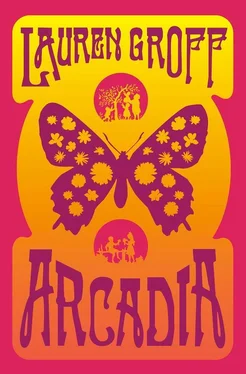
![Andrea Höst - In Arcadia [Touchstone - Extras]](/books/56405/andrea-host-in-arcadia-touchstone-extras-thumb.webp)

